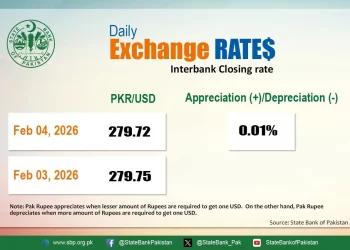Federal Minister for Finance and Revenue Senator Muhammad Aurangzeb on Tuesday said the government is in the “advanced stages” of seeking assurances around external financing as the government scrambles to secure Executive Board approval for the finalisation of its $7 billion loan from the International Monetary Fund (IMF).
“On discussions with the IMF, we are in advanced stages in terms of getting assurances around our external financing,” Aurangzeb said while giving a briefing on Tuesday.
“We are hopeful that the IMF Executive Board will approve this programme on time,” he said, lauding the role of provincial governments.
He reiterated Prime Minister Shehbaz Sharif’s earlier statement that this is going to be Pakistan’s last programme with the IMF. “For this, we need to deliver on structural reforms,” he said.
Govt working on implementing IMF conditions, says PM
Back in July, the IMF staff and the Pakistani authorities reached a staff-level agreement on a 37-month Extended Fund Facility (EFF) Arrangement of about $7 billion.
This agreement is still subject to approval by the IMF’s Executive Board and the timely confirmation of necessary financing assurances from Pakistan’s development and bilateral partners.
However, with those assurances pending, the IMF has not yet added Pakistan on its Executive Board schedule.
This comes as Pakistan works on securing a rollover of $12 billion in loans from key allies, including China, Saudi Arabia, and the United Arab Emirates (UAE). In addition, Pakistan has reportedly requested an additional $1.2 billion loan from Saudi Arabia to address a $2 billion financing gap.
Backlog of payments cleared
In his address, Aurangzeb said due to improved economic indicators, all the backlog including import LCs, contracts or dividend and profit remittances have been cleared.
“Similarly, the inflation rate has reduced to 9.6% in August 2024 from 23.7% in same period last year. As the inflation rate is gradually reducing, the policy rate is coming down gradually, which is aiding the economy especially the industrial sector.
“As interest rate decreases, this will be beneficial for all segments,” he maintained.
Aurangzeb said the improvement in credit ratings by Fitch and Moody’s is an “external recognition” that the economy is moving in the right direction.
He said there is no path to growth without stabilisation.
“We have a long way to go, but we need to recognise the positive macro indicators,” he said.
About Federal Board of Revenue (FBR) tax targets, the Finance Minister maintained that the government remains adamant to increase tax collection.
“Around 43% of sectors in this economy pay less than 1% tax,” said Aurangzeb. “We all have to contribute, otherwise we will keep on going to the same for more, and there too, we don’t have much space,” he said.
Aurangzeb admitted that the salaried class and the manufacturing industry are “already paying way above what they are contributing to the GDP”.
He urged wholesalers, retailers and distributors to contribute to the country’s economy. The government is ready to facilitate and engage with them, he said.
Aurangzeb said that the FBR has simplified the process of filing taxes.
“However, one thing I want to be very clear on, this is not going to be taken back,” he said.
“Countries don’t work on charities,” he reiterated.
He said that the impact of tax digitisation measures will become evident from September onwards.
The FBR on Sunday officially admitted that the tax machinery suffered a huge shortfall of Rs 98 billion in tax collection during first two months of 2024-25, as net collection stood at Rs1,456 billion against assigned target of Rs1,554 billion during this period.
“It is easy to delay some processes, however, the government does not intend to resort to these measures,” he said.
On rightsizing, Aurangzeb maintained that the incumbent government “is very clear that the size of the federal government will come down”.









